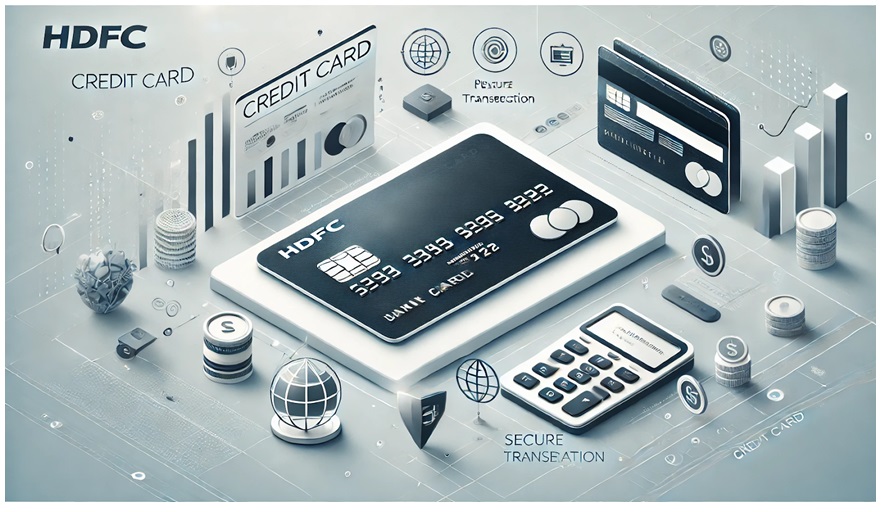Are you wondering, “after how many days a credit card bill is generated?” If you know how the billing cycle works, it can help you manage your finances a lot better. Initially, comprehending the timeline when your bill is generated can be a bit of a mystery, but it becomes easy to understand the same over time.
Generally speaking, your credit card issuer will generate your monthly statement on a specific date, known as the statement closing date. The day you activate your card marks the start of your billing cycle, and this billing date remains consistent as long as your card remains active.
Basics of the Credit Card Billing Cycle
Knowing how billing works for a credit card is essential. This is to help you avoid unnecessary fees or interest charges. Read on to familiarise yourself with the following key features:
- First Day of Billing Cycle
Your billing cycle initiates on the very day you activate your card. Suppose you activated your card on 9th September then your billing cycle will follow that pattern.
- Bill Accrual Period
For most cards, the billing cycle ranges from 28 days to 31 days. Any transactions you make within this period will be included in your bill for the billing cycle. This period is the bill accumulation period.
- Statement Closing Date
The closing date will be decided based on the billing cycle. Generally, it is the last day of the bill accumulation period. After this period, if there are any transactions, they will not be added to your upcoming bill but will be added to the statement generated after that.
- Statement Day
This is the day the statement for your card is generated. This statement reflects all transactions made until that point and is generated at the end of your billing cycle. This day is also commonly referred to as the credit card billing date.
- Grace Period
Your issuer decides this period; typically, it is between 5 to 10 days. Once your statement has been generated, you ought to repay your bill before this grace period ends. If you don’t, your outstanding amount will start to accumulate interest on it.
- Due Date
The last day of your grace period is the due date. You will need to pay your bill by the due date to avoid late fees and interest on your outstanding amount.
Understanding Credit Card Billing Date with an Example
Suppose you activated your card on 9th September, 2024, and the issuer has a billing cycle of 30 days. In that case, your next billing date will be 9th October 2024. Once your statement is generated, you’ll have a grace period of 7 days. In this scenario:
| Your first day of the billing cycle is 9th September |
| Your bill accrual period is from 9th September to 9th October |
| Your statement closing date is 9th October |
| Your grace period is 7 days |
| So, your due date will be 17th October |
Your issuer will allow you ample time to examine the charges on your statement and, consequently, make a payment. Understanding your billing cycle and the outstanding balance is crucial as it can assist you in preventing high-interest charges and fees.
How to Manage Your Credit Card Efficiently
To maintain a healthy relationship with your credit card, keep track of your monthly spending. This will help you stay within your budget. It further ensures you have enough funds available for emergencies. Here are some tips to help you manage your credit card effectively:
| Pay Bills on Time | Try to pay your bills on or before the due date; this way, you will not attract any penalties or interestTimely bill payments also help improve your credit score |
| Avoid Paying Minimum Due | Try paying the total outstanding bill; if you keep paying only the minimum amount due, interest will keep accruing on your outstanding amountPaying the minimum amount only keeps your credit score intact |
| Manage the Unbilled Amount | Keep a check on your unbilled amount, but don’t stress about it as long as you’re paying your bills on time This unbilled amount reflects transactions made after the statement closing date and will appear on the next billing cycle |
Ultimately, it’s crucial that you continually strive to enhance your credit score. Nonetheless, the whole procedure can feel somewhat daunting, particularly if you are on the brink of beginning your adventure with credit cards. If you seek a card that can boost your savings and improve your shopping experience, then think about the One Credit Card.
With this card, you can enjoy lucrative offers on travel, grocery, retail and you can earn 5X rewards on your top two spending categories. You can also use the OneCard App to track your monthly expenses and pay your bills on time. To taste all the perks and benefits of this lifetime-free credit card, apply now.




